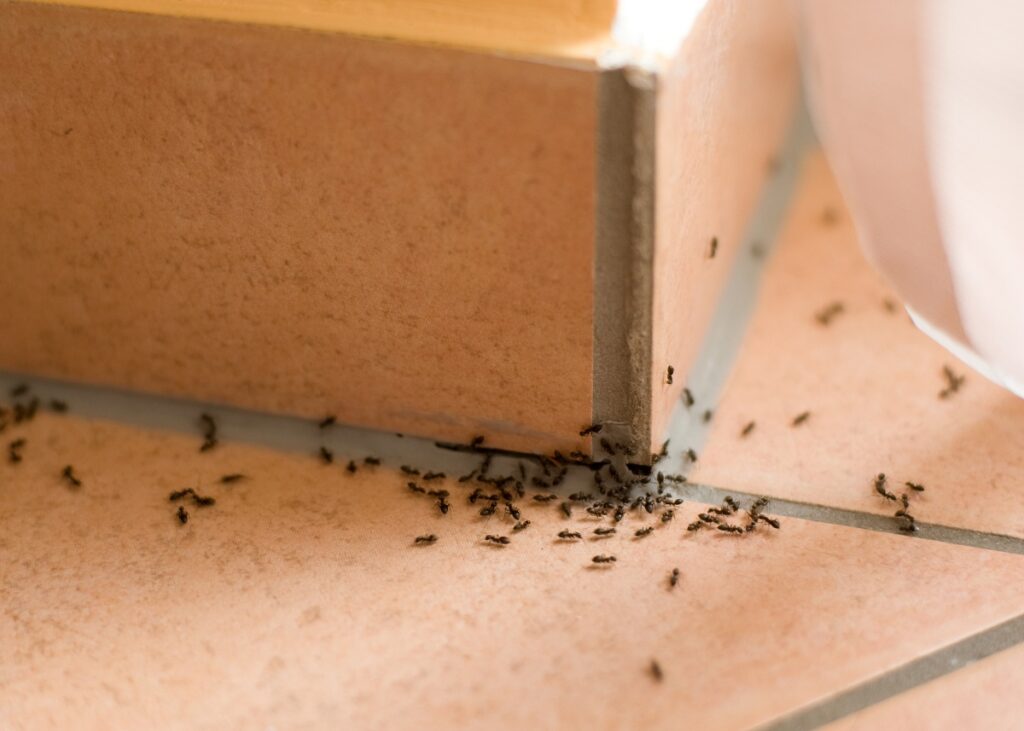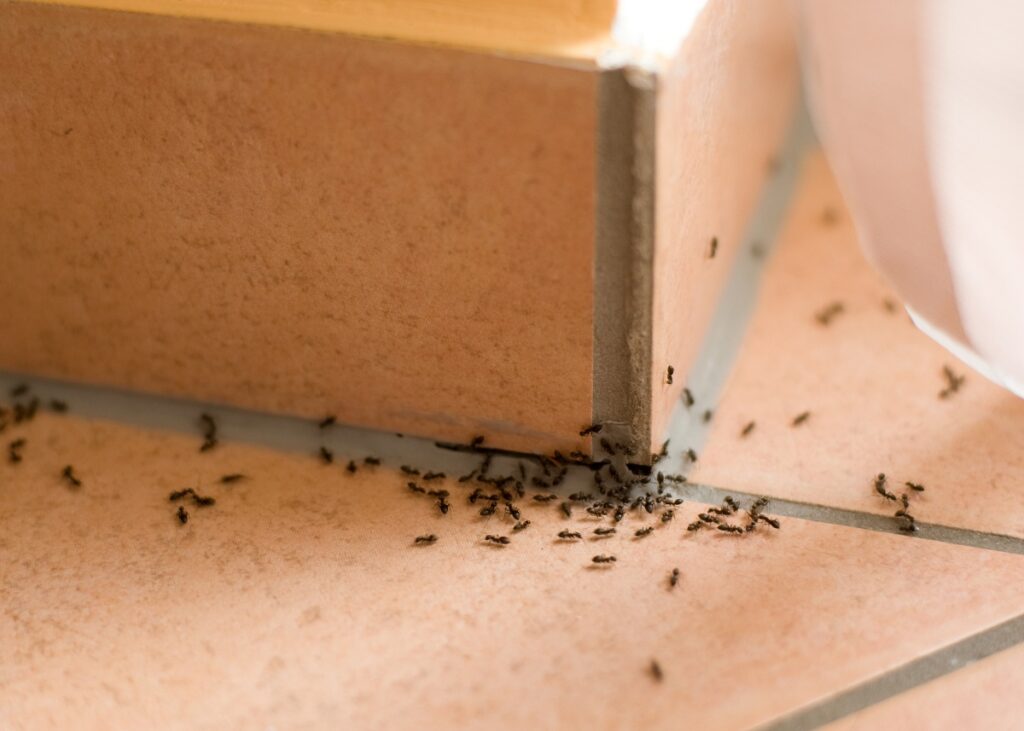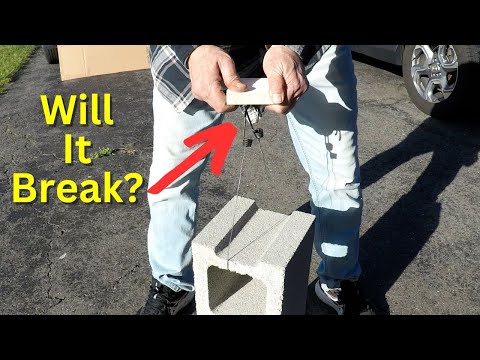
Understanding the Behavior of House Ants
Understanding the Behavior of House Ants
One fascinating aspect of house ants is their ability to communicate and work together as a colony. These tiny creatures leave chemical trails called pheromones, which act as a form of communication between individual ants. By following these trails, they can locate food sources and guide other members of the colony to them. This behavior helps them efficiently gather resources and ensure the survival of the entire ant community.
House ants also exhibit strong territorial instincts. They mark their territory by leaving scent trails along surfaces, such as walls or countertops, creating invisible highways for other ants to follow. This behavior allows them to establish well-defined foraging routes and defend their nests against intruders or rival ant colonies.
Another interesting behavior displayed by house ants is their preference for sweet substances. These insects are attracted to sugary foods like honey, syrup, or fruit juices due to their high carbohydrate content. Understanding this preference can help homeowners identify potential areas where ant infestations may occur, such as near spilled drinks or unwashed dishes with residue.
By understanding these behaviors exhibited by house ants – their communication through pheromones, territorial marking through scent trails, and attraction towards sweets – we can gain valuable insights into how they operate within our homes. Armed with this knowledge, we can take proactive measures in preventing ant infestations and effectively eliminating any existing ones without relying solely on harmful chemicals or pesticides.

Identifying the Signs of an Ant Infestation in Your Home
Ant infestations in homes can be a nuisance and potentially lead to health risks. It is important to identify the signs of an ant infestation early on so that appropriate measures can be taken. One common sign of an ant infestation is the presence of ant trails, which are visible lines or paths that ants follow to and from their food source. These trails are often found near windowsills, baseboards, or other areas where ants may enter your home.
Another sign to look out for is small piles of dirt or debris near cracks or crevices in your home. Ants build nests in these hidden spaces and will often leave behind evidence such as discarded soil particles or tiny wood shavings. If you notice these signs, it is likely that there is an ant colony nearby.
Lastly, if you see winged ants inside your home, it could indicate a mature ant colony nearby. Winged ants are reproductive males and females that leave the nest to mate and establish new colonies. Their presence indoors suggests that there may already be an established colony within your vicinity.
By being vigilant and identifying these signs early on, you can take necessary steps to address the ant infestation before it becomes more severe. Regularly inspecting your home for any signs mentioned above will help ensure a prompt response and effective ant control measures against these unwanted pests.
Preventive Measures to Keep Ants Away from Your House
Ants can be a nuisance when they invade your home, but there are preventive measures you can take to keep them away. One effective method is to keep your house clean and free of food debris. Ants are attracted to crumbs and spills, so make sure to wipe down countertops, sweep the floors regularly, and promptly clean up any spills or messes.
Another important step in ant prevention is sealing off entry points. Ants can enter through even the tiniest cracks or gaps in windows, doors, and walls. Inspect your home for potential entry points and seal them with caulk or weatherstripping. This will help deter ants from finding their way inside.
Additionally, it’s crucial to store food properly to prevent attracting ants into your home. Keep all food containers tightly sealed and stored in cabinets or refrigerators. Make sure pet food bowls are not left out overnight as this can also attract ants. By following these preventive measures consistently, you can greatly reduce the likelihood of an ant infestation in your house.
By implementing these simple steps such as keeping a clean environment, sealing entry points effectively, and practicing proper food storage techniques; you can significantly minimize the chances of encountering an ant problem at home. Taking proactive measures is key when it comes to preventing these tiny invaders from infiltrating your living space. Stay vigilant in maintaining cleanliness throughout your household while being mindful of potential access areas for ants; this will go a long way in ensuring that you have an ant-free environment where you don’t have to worry about unwanted guests disrupting your daily life activities
Natural Remedies for Eliminating Ants from Your Home
Using natural remedies to eliminate ants from your home can be an effective and eco-friendly solution. One popular method is using vinegar. Ants are repelled by the strong scent of vinegar, so spraying a mixture of equal parts vinegar and water along ant trails or entry points can deter them from coming inside.
Another natural remedy involves using essential oils. Peppermint oil, in particular, has been found to be effective in getting rid of ants. Simply mix a few drops of peppermint oil with water and spray it around areas where ants are commonly seen. The strong smell will discourage them from entering your home.
Boric acid is another option for eliminating ants naturally. It works by disrupting their nervous system and eventually killing them off. You can create a homemade bait by mixing boric acid with sugar or honey to attract the ants. Place small amounts of this mixture near ant trails or entry points, but make sure to keep it out of reach of children and pets.
By utilizing these natural remedies, you can effectively eliminate ants from your home without resorting to harmful chemicals or pesticides. However, it’s important to note that while these methods may work well for minor infestations, they may not be sufficient for larger or more persistent ant problems. In such cases, it’s advisable to seek professional pest control services for thorough eradication.
The Role of Proper Food Storage in Ant Prevention
Proper food storage plays a crucial role in preventing ant infestations in your home. Ants are attracted to food sources, particularly sweet and sugary substances. By ensuring that all food items are securely stored, you can significantly reduce the likelihood of ants invading your kitchen or pantry. Keep pantry staples such as sugar, honey, and syrup in tightly sealed containers to prevent ants from detecting their presence.
Additionally, it is important to promptly clean up any spills or crumbs on countertops and floors. Even tiny traces of food can attract ants into your living space. Regularly wiping down surfaces with soap and water will not only keep them clean but also remove any lingering scent trails left by foraging ants.
Furthermore, consider storing fruits and vegetables properly to deter ant activity. Ripe produce emits odors that may attract these pests if left exposed on countertops or in open bowls. Instead, store fruits and vegetables inside the refrigerator or place them in sealed containers when they need to be kept at room temperature.
By implementing these simple yet effective measures for proper food storage, you can greatly minimize the risk of an ant infestation in your home. Remember that prevention is key when it comes to dealing with household pests like ants – taking proactive steps now will save you from potential headaches later on.
Crawling Concerns: Tackling Common House Ant Infestations was first seen on https://propestcontrolservices.com/





More Stories
Effective Spider Control Strategies, Facts and Prevention
Watering 101…No Need To Over Complicate Things!
Limited Growing Space Does Not Have to Mean Limited Color!